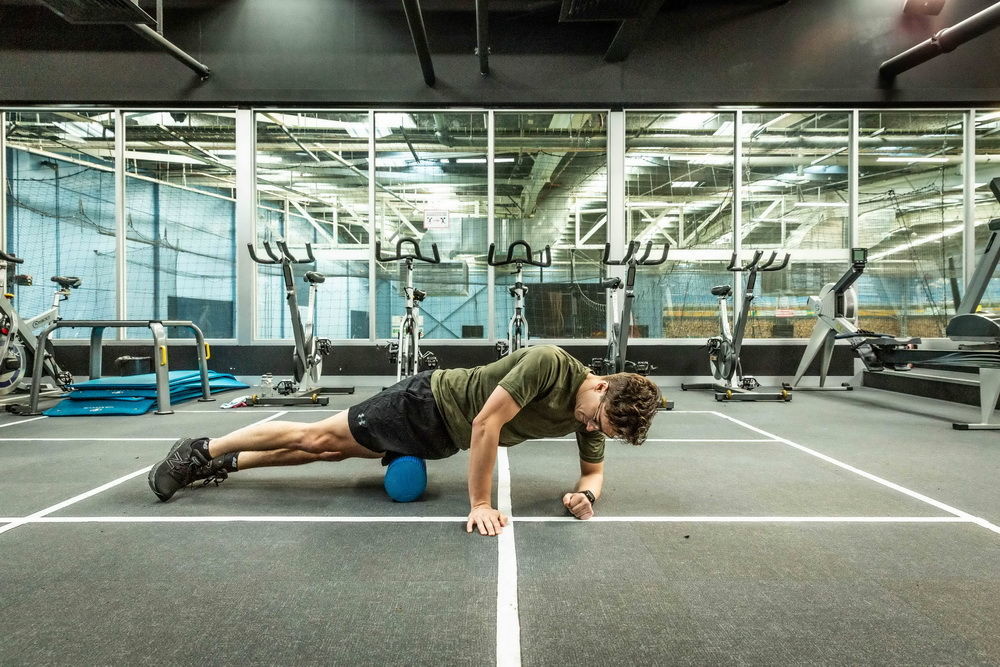You want to stay active in lockdown... Gyms are closed and you're sick of bodyweight YouTube workouts. You've decided to start or increase your running! Great choice.
Running is excellent for time like this:
- No equipment required
- Great for mental health
- It's outside in the fresh air
- It's a high metabolic form of exercise
If your goal through lockdown is to start/increase/improve your running, then here are 5 keys tips for injury prevention and improved performance.
Plan Your Rest
Most runners want to run and run more, they are also rigid in sticking to their weekly programs; trust me I am the worst with it. It is important to plan your running in months not weeks. Most runners will try to continuously increase their running week to week, linear progression, which is a great way to burn out and get injured or see a gradual loss of performance. Instead, plan your progressions over 2-3 week blocks and then have a planned rest week with reduced loading.
Recovery
Recovery is probably the most important element of training to increase performance and reduce injury risk. The two biggest factors are, sleep and nutrition:
- Sleep - get to bed early so you get appropriate volume (8hrs), minimise phone/computer light before bed, mindfulness before going to sleep, no caffeine after 12pm and limit intake through the day
- Nutrition - I am not a nutritionist so I won’t tell you what to eat, BUT, make sure you prioritise fuel intake pre and post exercise for recovery. Ensure you are eating enough calories of the right mix (carbs, proteins and fats) to fuel your training and rebuild you tissues.
- Extras - foam rolling, hot/cold shower post run, compression gear, stretching, icing
Strength Exercises
Just because you run, doesn’t mean you cannot do strength, and yes this includes legs. It is important to schedule in two leg strength sessions per week to supplement your running. Strength should focus on single leg multi joint exercises such as; Bulgarian Split Squats, Single Leg Romanian Deadlifts etc, but in the end anything is better than nothing. It is also important to target strength not just repetitions for endurance. Set a weight for your exercises that performing 8 reps would be challenging and aim to do 3-4 sets of this with minimum 1 minute rest between sets.
Load Management
This means not having a large increase this week from what you have done over the last few weeks. We do not want sudden increases in the volume, speed or terrain difficulty than what your body is prepared for. So again, planning a month’s training in advance can be very useful. We look for no greater than a 30% increase in your next week compared to the average over the past 3 weeks prior. But a simpler way to do it is to look at your last month’s average kms on whatever watch/app you use to track your running and add 10% for the next week.
Vary Your Training
Nothing will slow your improvements then running the same distance at the same speed over and over and over and over again. Again, I know runners love consistency, I also have Obsessive Compulsive Disorder, but it is important to have variable stimulus for the body to improve. Make sure you plan faster interval runs with breaks, long slow runs that feel too comfortable and medium runs that work you hard. This will allow you to target different systems creating improvement in areas you are not currently affecting, whilst also allowing recovery for other systems which can then allow improved performance.
Summary
There's a bit more to it than just running out your front door isn't there? Don't worry we can distill this blog down for you to one line.
"Don't do too much, too soon or too often. Mix it up, and add some leg strengthening exercises. Take the time to recover"
See... simple!
Are you having an issue with a running related issue? We can help! Head to our website for more information, or book online here
Do you want to know more about Liam and the rest of the Enhance team? Click here


